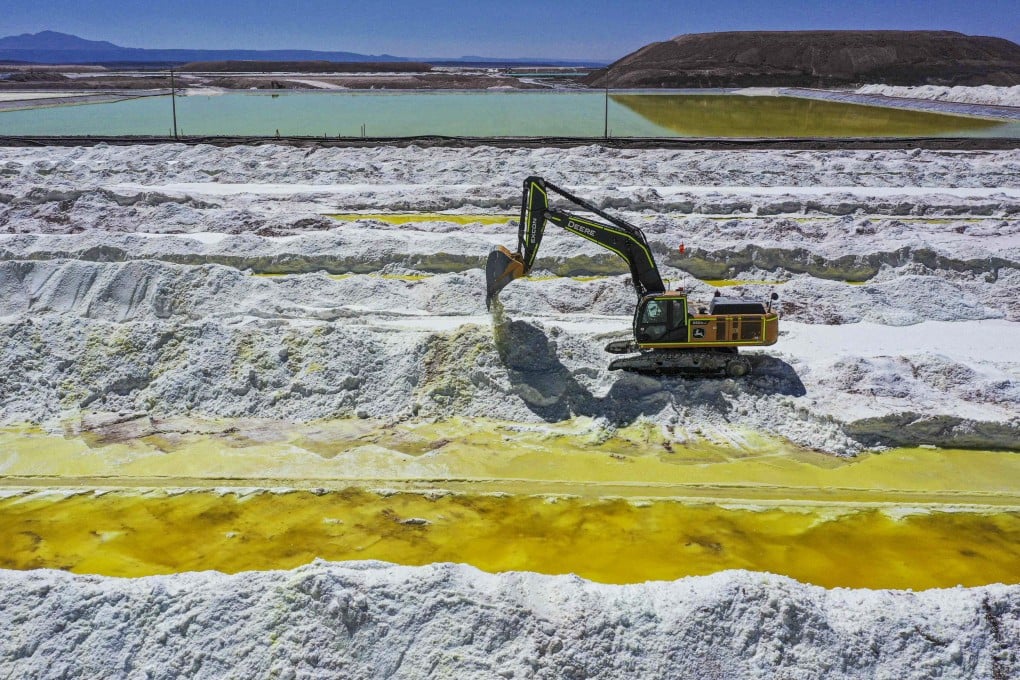Fund managers should push lithium, copper miners to be better role models on environment, labour issues, says responsible investment firm
- Global lithium production sector recorded 36 incidents that flouted environmental rules between June 2019 and November 2022, ISS ESG says
- China, Australia and Chile accounted for around 95 per cent of global lithium output in 2021, according to the US Geological Survey

Global fund managers should push producers of lithium, cobalt and copper - key metals used in electric vehicles (EVs) and other decarbonisation equipment - for greater transparency on environmental and social issues arising from their operations, a responsible investment adviser said.
All three metals are crucial in EV batteries, whose demand has surged as decarbonisation and climate-change initiatives accelerate the adoption of EVs. Copper, for example, is used in electric motors, busbars and charging installations, and also forms an integral part of power-grid infrastructure and wind turbines.
“Single-source supply chain risk, environmental impact, human rights abuses and labour practices are all significant concerns present in the lithium mining and battery production industries,” said ISS ESG, the responsible investment arm of Institutional Shareholder Services. Money managers can demand better transparency and practices” from weaker environment, social and governance (ESG) performers, it added.
ISS offers services to global investors seeking to elevate corporate governance and improve ESG practices among corporate boardrooms. The US-based firm is majority-owned by Deutsche Borse Group.
The global lithium production sector caused some 36 incidents that broke international norms on environmental protection between June 2019 and November 2022, according to ISS research. It also created 35 cases on human-rights issues during the period.
Extraction of lithium brine in Chile, Argentina and Bolivia, which together have 56 per cent of the world’s known reserves, has been linked to the lowering of groundwater levels and desertification, ISS said, citing findings by the London-based Business and Human Rights Resource Centre.
In a recent case in Yichun, China - dubbed the lithium capital of Asia - several listed firms halted production, according to stock exchange filings, to facilitate investigations possible pollution in a rive that is a key source of water for nearby residences.